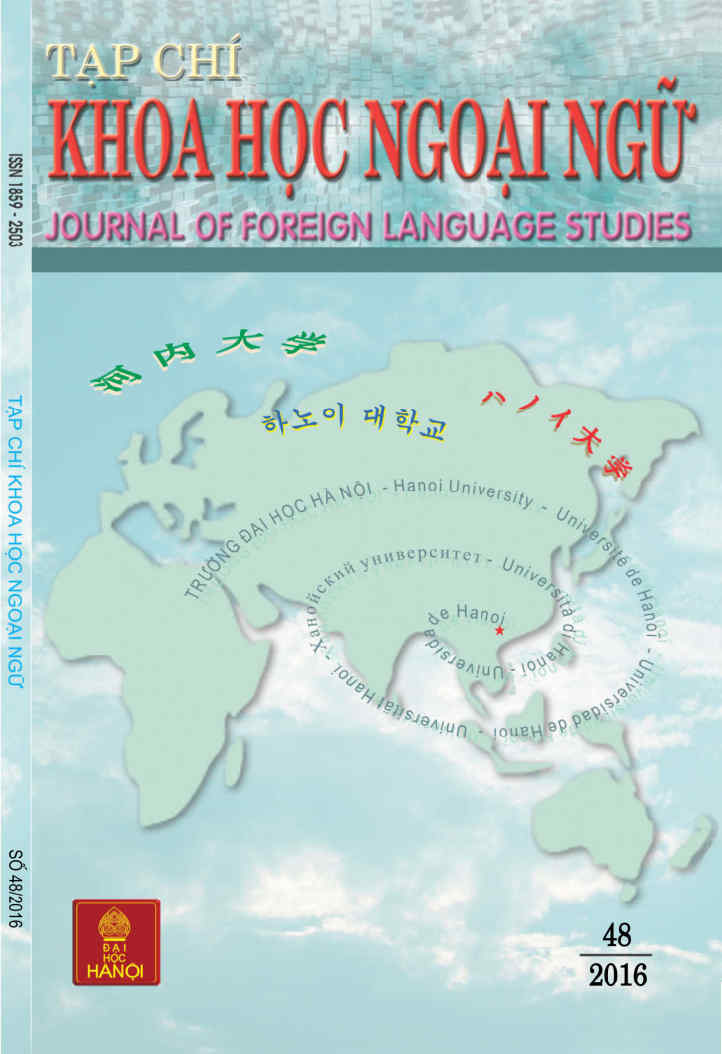METAPHORICAL AND METONYMICAL COMPARISION DENOTING ANGER IN JAPANESE AND VIETNAMESE FROM ASPECT OF COGNITIVE LINGUISTICS
DOI:
https://doi.org/10.56844/tckhnn.48.588Keywords:
conceptual metaphor, conceptual metonymy, emotion, anger, Japanese, VietnameseAbstract
Metaphor and metonymy are important concepts in the cognitive linguistics. They play vital roles in human’s conceptualization and such abstract categories as emotion are often expressed through metaphor and metonymy. These figures of speech are derived from personal experience and influenced by cultural models. In this paper, such conceptual metaphors of anger as “heat”, “heat of a fluid in a container”, “fire”, “dangerous animal, “opponent”, “burden”… proposed by Lakoff and Kovecses (1987), are used to compare and contrast Japanese and Vietnamese conceptual metaphors of anger. It is found that both in Japanese and Vietnamese, fire and the heat of a fluid in a container can represent anger. However, anger can also be understood as “KHÍ-気” in Vietnamese, which cannot be found in Japanese. Besides, the article also pointed out some other similarities and differences in the conceptual metaphor and metonymy of anger in the two languages.






